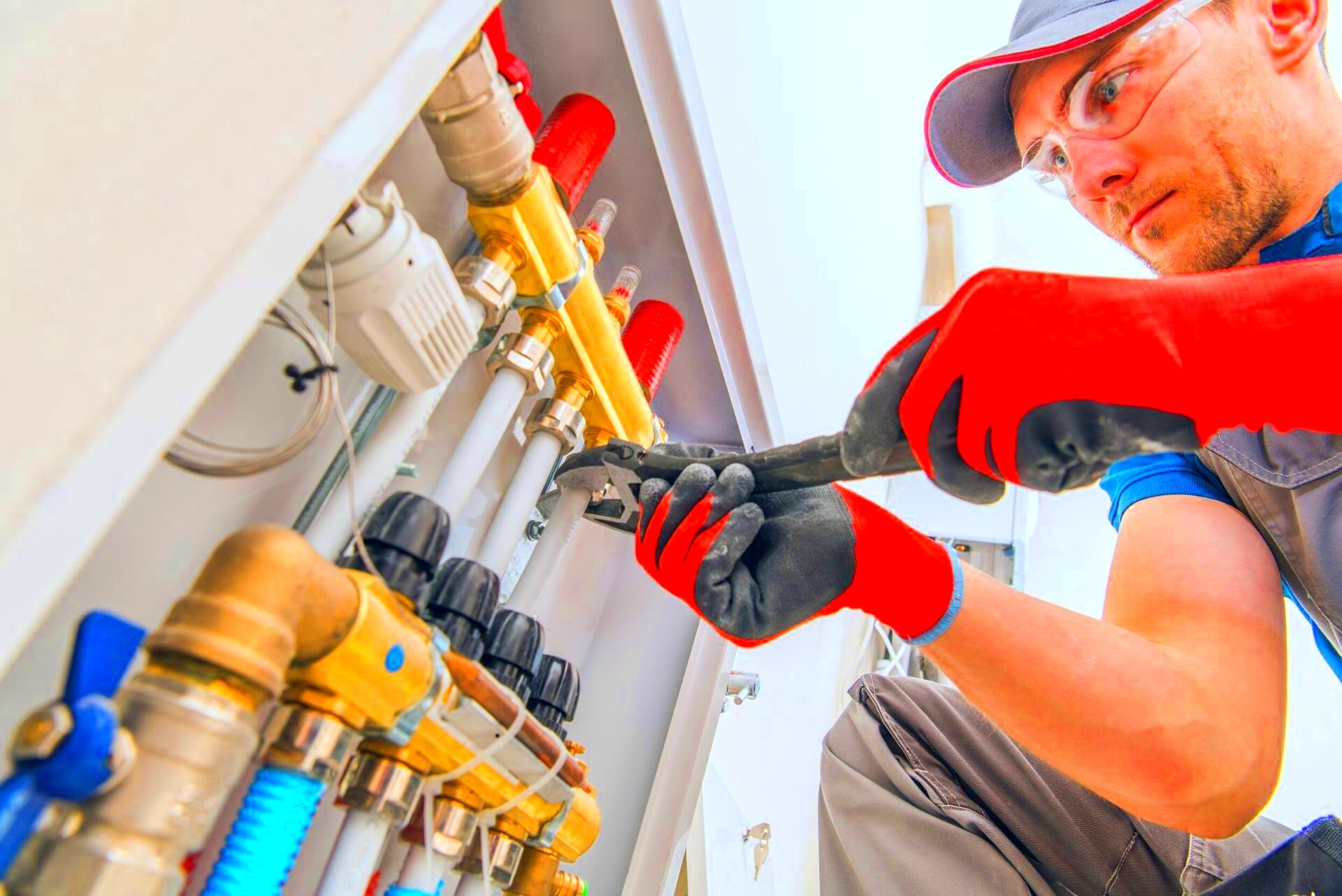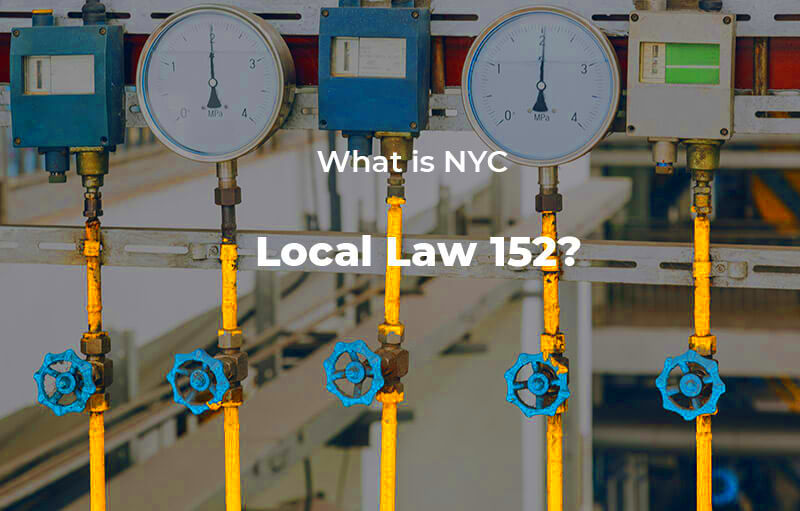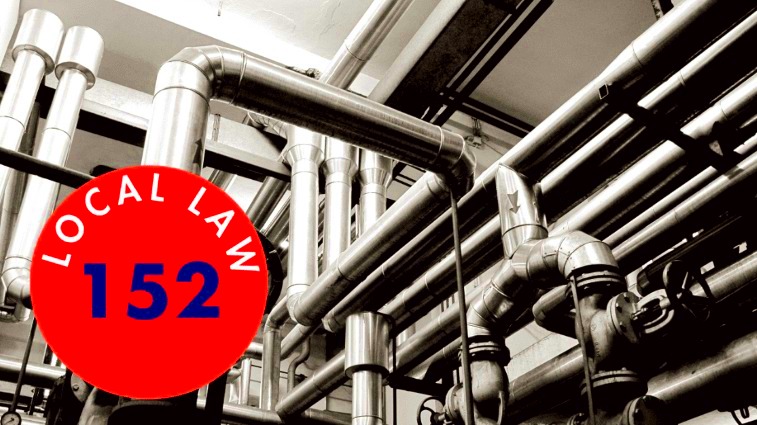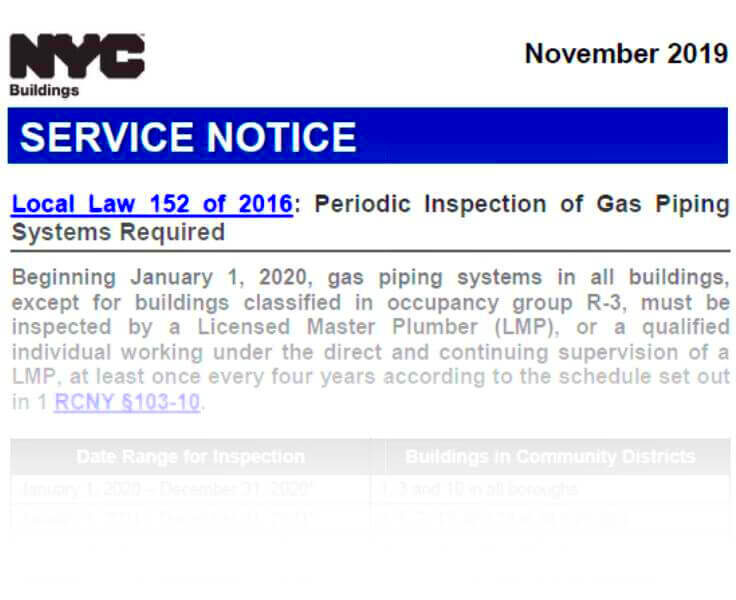What Local Law 152 Means for Plumbers
Local Law 152 is an important regulation in New York City that focuses on the inspection and maintenance of gas piping systems. It was enacted to ensure safety and prevent accidents related to gas leaks. The law requires building owners to conduct regular inspections of their gas piping systems, which are crucial for safeguarding lives and properties. Plumbers play a vital role in this process, and understanding the nuances of this law is essential for compliance and effective service delivery.
Key Provisions of Local Law 152

Local Law 152 includes several key provisions that plumbers must be aware of. Here are some of the main points:
- Inspection Requirements: Buildings must have their gas piping systems inspected every four years by a qualified professional.
- Documentation: Plumbers must provide detailed reports of inspections, including any necessary repairs or maintenance performed.
- Emergency Protocols: The law outlines specific procedures for handling emergencies related to gas leaks, including immediate reporting to the authorities.
- Certification: Only licensed plumbers are authorized to perform inspections and maintenance under this law.
Compliance with these provisions not only enhances safety but also helps in avoiding legal repercussions for building owners and plumbers alike.
Impact on Plumbing Practices

Local Law 152 has significantly influenced plumbing practices in New York City. Here’s how it affects plumbers:
- Increased Demand for Services: With regular inspections mandated, there is a greater need for qualified plumbers to perform these tasks, leading to more job opportunities.
- Enhanced Training: Plumbers need to stay updated on the latest regulations and best practices to ensure compliance, which may require additional training and certifications.
- Emphasis on Safety: The law emphasizes safety, prompting plumbers to adopt more rigorous safety measures during inspections and repairs.
Overall, Local Law 152 has brought about a positive shift in the plumbing industry, fostering a culture of safety and accountability.
Compliance Requirements for Plumbers

When it comes to Local Law 152, compliance is key for plumbers. This law sets forth specific requirements that ensure the safety and reliability of gas piping systems. For plumbers, understanding these requirements is crucial not only for legal adherence but also for building a trustworthy reputation among clients. Here’s what plumbers need to know:
- Qualified Personnel: Only licensed plumbers can conduct inspections and maintenance on gas piping systems, ensuring that all work is performed by trained professionals.
- Regular Inspections: Plumbers are required to carry out thorough inspections every four years. It’s essential to develop a routine schedule to keep track of when these inspections are due.
- Documentation: After an inspection, plumbers must provide detailed documentation, including any findings and the steps taken to address them. This paperwork is crucial for compliance verification.
- Emergency Procedures: Plumbers should be familiar with emergency procedures and how to report gas leaks promptly. Knowing the right steps can save lives and prevent damage.
- Client Education: It’s important for plumbers to educate building owners about their responsibilities under Local Law 152, ensuring they understand the necessity of regular inspections.
By adhering to these compliance requirements, plumbers not only meet legal obligations but also contribute to a safer community.
How Local Law 152 Affects Building Owners

Local Law 152 doesn’t just impact plumbers; it has significant implications for building owners too. Understanding these effects can help owners take proactive steps in ensuring compliance and safety. Here’s what building owners need to consider:
- Financial Responsibility: Building owners are responsible for the costs associated with inspections and any necessary repairs. This can impact budgeting and long-term financial planning.
- Safety Obligations: The law places a duty on owners to ensure their gas piping systems are safe and well-maintained, protecting both residents and property.
- Legal Consequences: Non-compliance can lead to fines and legal issues, making it crucial for owners to understand and fulfill their responsibilities under the law.
- Collaboration with Plumbers: Building owners must establish a good relationship with licensed plumbers to ensure timely inspections and repairs, fostering a team approach to compliance.
- Enhanced Property Value: Regular maintenance and compliance with safety regulations can enhance the overall value of a property, making it more attractive to potential buyers or tenants.
By actively engaging in compliance efforts, building owners can help create a safer living environment while also protecting their investment.
Common Challenges Plumbers Face
While Local Law 152 aims to enhance safety, it also brings certain challenges for plumbers. Understanding these challenges can help them navigate the complexities of compliance more effectively. Here are some common issues plumbers may encounter:
- Keeping Up with Regulations: Local laws can change, and staying updated is essential. Plumbers must dedicate time and resources to ongoing education to remain compliant.
- Document Management: Ensuring that all inspections and maintenance are well-documented can be tedious. Plumbers need efficient systems for record-keeping to avoid issues with compliance.
- Access to Properties: Gaining access to buildings for inspections can be challenging, especially in larger complexes where scheduling with multiple owners may be required.
- Time Constraints: Balancing inspections with other plumbing jobs can lead to tight schedules. Plumbers need to manage their time effectively to meet compliance deadlines.
- Client Awareness: Many building owners may not fully understand their responsibilities under Local Law 152, making it crucial for plumbers to educate them and facilitate compliance.
By recognizing and addressing these challenges, plumbers can better navigate the demands of Local Law 152 and provide valuable services to their clients.
Resources for Plumbers Regarding Local Law 152
Understanding Local Law 152 can be complex, but there are plenty of resources available to help plumbers stay informed and compliant. Utilizing these resources can make a significant difference in navigating the law effectively. Here are some valuable resources:
- NYC Department of Buildings: The official website provides comprehensive information about Local Law 152, including guidelines, compliance checklists, and updates. It’s a great starting point for any plumber looking for accurate information.
- Industry Associations: Organizations like the Plumbing Contractors Association offer training, workshops, and seminars specifically focused on Local Law 152. These can be excellent opportunities for networking and gaining insights.
- Online Training Programs: Several online platforms offer courses about local plumbing codes and regulations. These courses can help plumbers understand Local Law 152 in detail and stay updated with any changes.
- Local Workshops: Many community colleges and trade schools host workshops on plumbing regulations, providing hands-on training and discussions with experts in the field.
- Networking with Peers: Engaging with fellow plumbers through forums and local meetups can be beneficial. Sharing experiences and solutions can provide practical insights and foster a sense of community.
By taking advantage of these resources, plumbers can ensure they are well-equipped to meet the requirements of Local Law 152 and enhance their professional expertise.
FAQ about Local Law 152
Understanding Local Law 152 can raise many questions for both plumbers and building owners. Here are some frequently asked questions that can provide clarity:
- What is Local Law 152? Local Law 152 requires gas piping systems in buildings to be inspected every four years by a qualified professional.
- Who is responsible for inspections? Building owners are responsible for ensuring inspections are conducted by licensed plumbers.
- What happens if I don’t comply? Non-compliance can lead to fines and potential legal action against the building owner.
- How can plumbers stay updated on the law? Plumbers can use resources like the NYC Department of Buildings, industry associations, and online training to stay informed.
- Are there penalties for failing to document inspections? Yes, proper documentation is essential for compliance, and failure to maintain records can result in penalties.
These FAQs help clarify common concerns and emphasize the importance of understanding Local Law 152 for everyone involved in the plumbing and building management fields.
Conclusion on Local Law 152 for Plumbers
Local Law 152 plays a crucial role in ensuring the safety and reliability of gas piping systems in New York City. For plumbers, understanding and adhering to this law is not just a matter of compliance; it is essential for protecting lives and properties. By staying informed about the law’s requirements and utilizing available resources, plumbers can navigate the challenges it presents and build a solid reputation in their field. Remember, this law not only impacts plumbers but also building owners, making collaboration and clear communication vital. In the end, embracing the responsibilities outlined in Local Law 152 can lead to safer communities and better plumbing practices.
